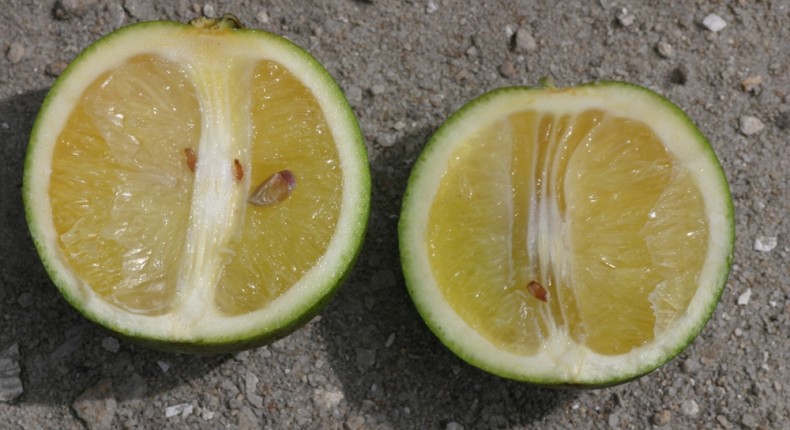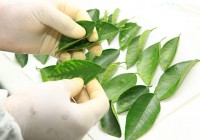22
set

Research manages to isolate a gene that can result in another tool to fight citrus greening, the main citrus disease.
A research conducted in partnership with Brazilian and American scientists might create a powerful weapon against citrus greening, one of the main diseases affecting orange groves in the largest producing regions of the fruit in the world. The study conducted by Brazilian Agricultural Research Corporation (Embrapa, in Portuguese) and the Agricultural Research Service of the U.S. Department of Agriculture (USDA/ARS), identified a gene called Met-1, which belongs to the tiny insect called psyllid, responsible for transmitting the disease. Now, the idea is to use a technique known as RNA interference (RNAi) to isolate this gene and use it against the mosquito.
In laboratory tests, more than 80% of the psyllids that fed with plants containing identical RNAs to the Met-1 gene, have died. As it was with Met-1, other two dozen genes were tested, but it had the highest insect mortality rate. The aim of this study is to develop strategies of disease control, fighting psyllids and harmless to other living beings and the environment.
The RNAi is one of the most recent biotechnology tools and it has the advantage to strike its target with great precision because it’s based on the genetic code of the target organism. “We can say that RNAi has a surgical precision because it allows us to affect specifically the target gene only in the organism of interest”, says Mr. Eduardo Chumbinho de Andrade, researcher of the Embrapa Labex-USA Program, who conducted the research in partnership with Mr. Wayne Hunter, researcher of ARS – Horticultural Research Laboratory USDA, in Fort Pierce, Florida.
“The identification of the Met-1 gene and the advances in technology development is a good example of the results reached by the Embrapa Labex Program when putting Brazilian talents in contact with their fellow colleagues and institutions in other countries working with cutting edge research”, highlights the coordinator of Scientific Cooperation of the Secretariat of International Affairs (SRI, in Portuguese) of Embrapa, Mr. Alexandre Morais do Amaral.
For more information on the research, in Portuguese, on the website: https://www.embrapa.br/web/mobile/noticias/-/noticia/15057104/brasil-e-estados-unidos-identificam-gene-para-combate-ao-hlb-dos-citros
- |

